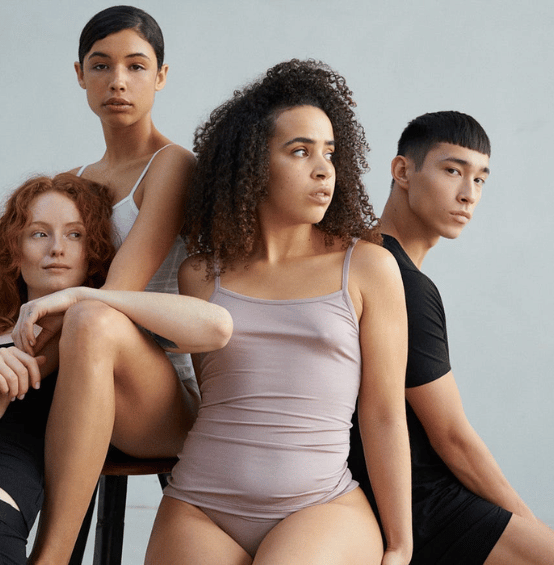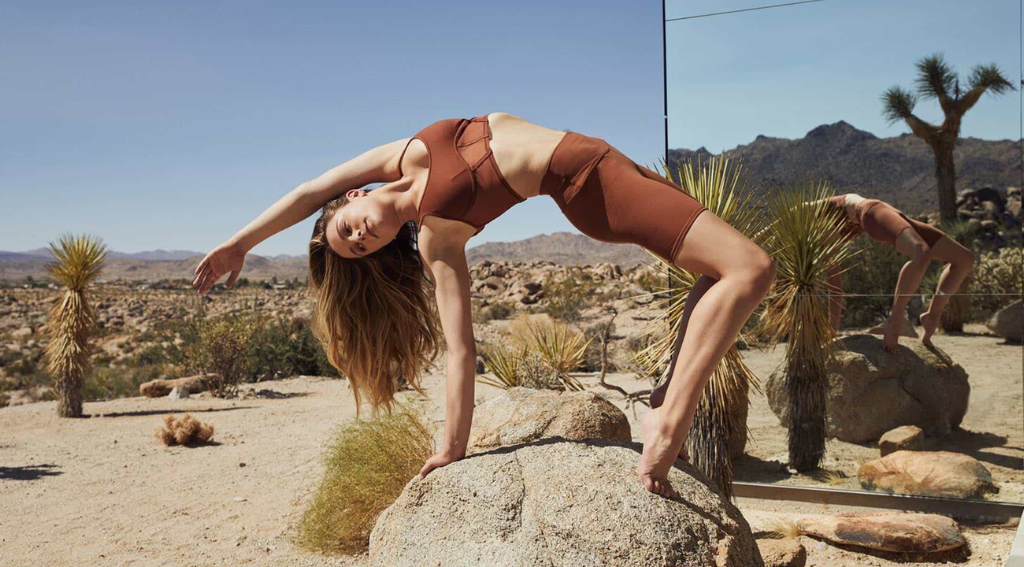Is Alo Yoga fast fashion? Or, is it ethical and sustainable? Does it have PFAS? Here’s everything you need to know about the yoga clothing brand that has taken over the entire social media fitness world by storm.
Alo Yoga: Sustainable, ethical, or fast fashion?
When it comes to stylish and functional yoga wear, Alo Yoga stands out, attracting yogis and celebrities like Taylor Swift, Gigi Hadid, and Kendall Jenner with its promise to spread good and elevate practices. With almost 3 million followers on Instagram, this Los Angeles-based brand has become synonymous with mindful movement, courage, and confidence both inside and outside the studio. Their motto? “To bring the power of yoga to people all around the world”. Alo Yoga takes its name from the acronym ALO, representing the harmony of “air,” “land,” and “ocean.”
But let’s hit the pause button on our sun salutations and take a closer look at Alo Yoga’s ethical and sustainable footprint. How ethical is Alo Yoga? Let’s take a look at their practices.
Don’t forget to check out our other guides too:
- Is Free People Fast Fashion, Ethical or Sustainable?
- Is J Crew Fast Fashion, Ethical or Sustainable?
- Is Romwe Ethical, Sustainable, or Fast Fashion?
Is Alo Yoga ethical?
Yes, Alo Yoga is an ethical brand.
The brand has firmly planted its roots in the soil of ethical practices by ensuring that its production process is 100% sweatshop-free. In the fast-paced world of fashion, where concerns about labor exploitation often loom large, Alo Yoga stands out for its responsibility.
Certified by the World Responsible Accredited Production (WRAP), Alo Yoga has earned its stripes in maintaining high workplace environment standards. WRAP, being one of the world’s foremost independent watchdog organizations, doesn’t hand out certifications like candy.
When WRAP gives its nod of approval, it means that Alo Yoga’s offices and factories are not just producing stylish activewear but are doing so ethically and humanely.
Every sewing facility undergoes rigorous scrutiny, with day-to-day operations overseen by professionals to ensure no ethical corners are cut. This translates to fair wages, standard working hours, and a clean and safe environment for the workers.
Is Alo Yoga sustainable?
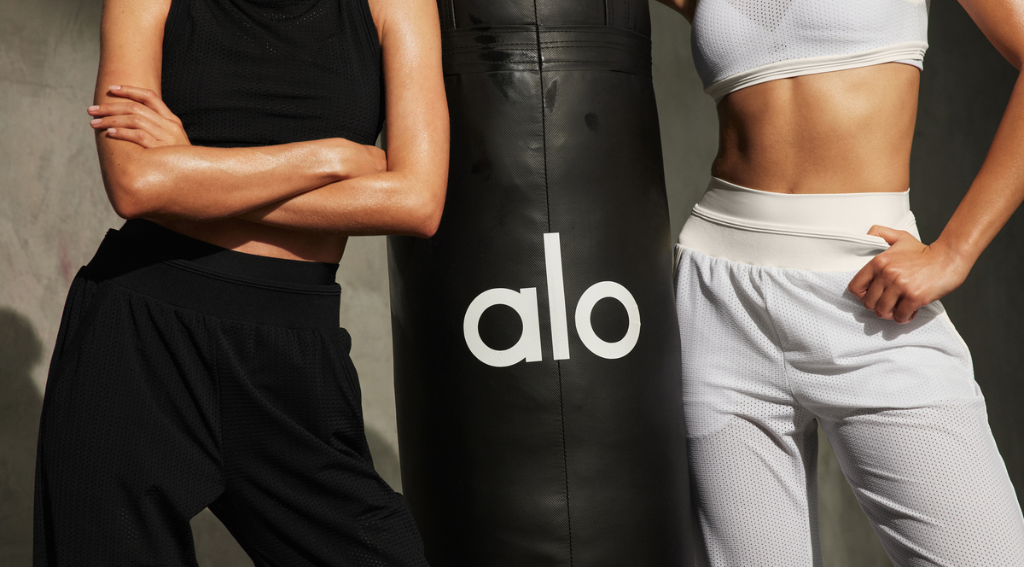
While Alo Yoga doesn’t boast of being 100% environmentally friendly, they’re taking meaningful steps towards sustainability.
From soft and durable synthetics like polyester and spandex to the comfort of natural fibers like cotton and rayon, Alo Yoga has a diverse palette for creating their apparel.
The use of eco-conscious materials and a dedication to minimizing their footprint demonstrate a commitment to a greener future. In a world where fast fashion often leaves a trail of environmental damage, Alo Yoga’s approach is a breath of fresh air.
What’s more, the brand has implemented a recycling program that goes beyond the usual lip service, aiming to ensure that they generate waste equivalent to that of a small household.
However, like any story, this one has its complexities. On the flip side, it’s been uncovered that Alo Yoga doesn’t follow a cruelty-free policy. Some of their clothing is manufactured using animal components such as leather, down feathers from exotic animals, and wool.
Is Alo Yoga Fast Fashion?
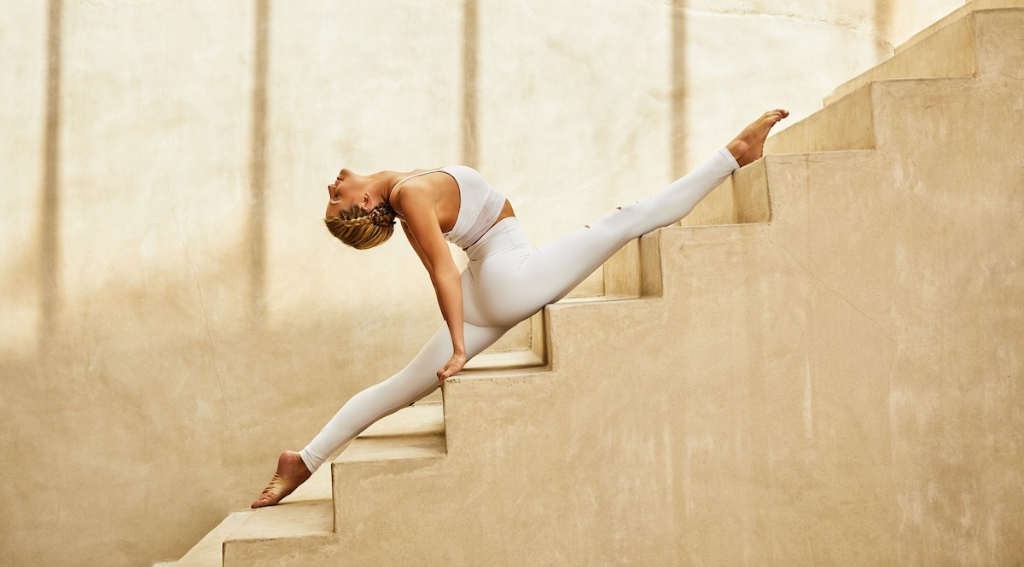
Not exactly! Alo Yoga treads a fine line in the fashion world, and labeling it as a 100% fast fashion brand isn’t as straightforward as it may seem. One glaring distinction is the price point. Alo Yoga positions itself as a luxury designer of activewear, and a quick glance at their price tags confirms this. In a world dominated by disposable fashion, Alo Yoga’s commitment to durability sets it apart.
Yet, the cadence of their collections raises an eyebrow. Like the heartbeat of fast fashion brands, Alo Yoga releases new collections almost every season. This frequent turnover is a characteristic feature of the fast fashion industry, designed to keep consumers constantly craving the latest trends.
But, before we slot Alo Yoga into the fast fashion category, let’s take a detour to the labor front. The absence of sweatshops in their manufacturing process is a significant departure from the fast fashion narrative. Sweatshops, notorious for exploiting workers, especially in impoverished Asian countries, are a dark reality of the fashion industry. Alo Yoga’s conscientious decision to steer clear of this practice showcases a commitment to ethical manufacturing and a refusal to compromise on the well-being of their workers.
Where is Alo Yoga manufactured?
The debate surrounding Alo Yoga’s decision to manufacture its products in China has become a focal point in discussions about labor and environmental standards in the fashion industry. However, in defense of its practices, Alo Yoga asserts that it collaborates with factories in China that adhere to fair labor practices.
Is Alo Yoga ethically made?
Yes, Alo Yoga emphatically asserts its commitment to ethical manufacturing by proudly declaring a 100% sweatshop-free policy. This dedication is not merely a statement but is backed by a platinum certification from WRAP, the World’s Responsible Accredited Production – a heavyweight in the realm of ensuring ethical manufacturing practices.
Does Alo Yoga have good quality?
Yes, flattering, comfortable, and incredibly high quality—these are the holy trinity of features we all crave in our activewear. In a market flooded with options, finding activewear that not only complements your body but also stands the test of time is like discovering a hidden gem. It sounds like you’ve found that in Alo Yoga—a brand that doesn’t just follow the trends but sets a standard for what activewear should be.
Is Alo Yoga cruelty free?
Unfortunately, Alo Yoga is not cruelty-free. Alo Yoga incorporates materials such as leather, down, and wool in their clothing, but notably excludes fur, Angora, and exotic animal skin from their repertoire.
Sustainable Alternatives to Alo Yoga for Ethical Activewear
1. The Girlfriend Collective
Price: From $46
Sustainable Materials: Recycled materials like post-consumer water bottles, fishing nets retrieved from the seas, fabric scraps, and other waste.
The Girlfriend Collective is an amazing ethical activewear brand with available in sizes XXS to 6XL. They specialize in minimal, luxury clothing produced with certified fair labor, as accredited by the Social Accountability Standard International SA8000. Also, the brand prioritizes sustainability, utilizing lower-impact materials like recycled polyester and non-toxic dyes. Their commitment is further reinforced by the OEKO-TEX® STANDARD 100 certification, ensuring products are free from harmful substances. Stylish, inclusive, and eco-friendly – exactly what we need!
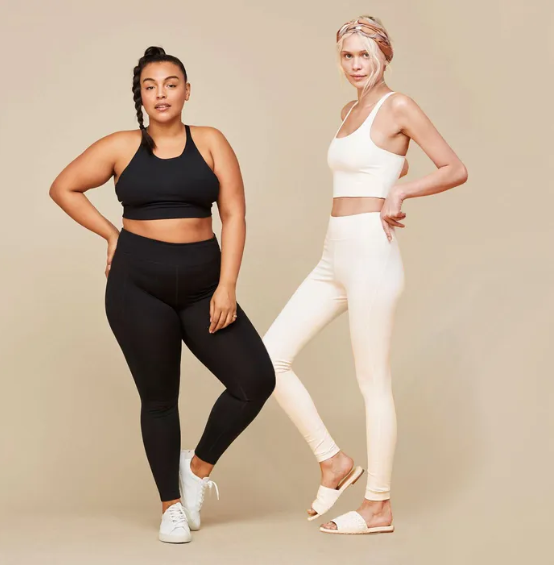
2. Tentree
Price: From $30
Sustainable Materials: Organic cotton, RPET, elastane
Tentree, recognized for its outstanding technical fabrics and use of recycled materials, stands out as a Certified B Corporation in the realm of sustainable fashion. The current lineup comprises two styles: the high-rise fair trade certified leggings and sports bras made from organic cotton and the InMotion line, incorporating 79% rPET (recycled polyester) and 21% elastane.
Plus, Tentree’s commitment to ethical manufacturing is evident through partnerships with WRAP, BSCI, and SA8000 Certified organizations, reinforcing their dedication to responsible and fair practices in the fashion industry.
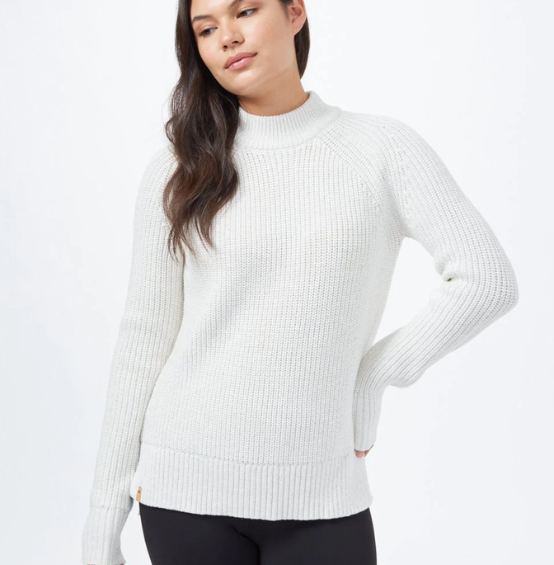
3. Organic Basics
Price: From $38
Sustainable Materials: Organic cotton, recycled nylon, elastane
Organic Basics is the mecca of PFAS-free leggings, sports brands, joggers, hoodies, and more organic clothing, crafted from organic cotton and recycled nylon—a blend known for its sweat-wicking, breathable, stretchy, and durable qualities. The GOTS standard for their organic leggings ensures the absence of harmful chemicals in cotton cultivation, with a commitment to fair treatment and living wages for the people involved in the leggings’ production.
